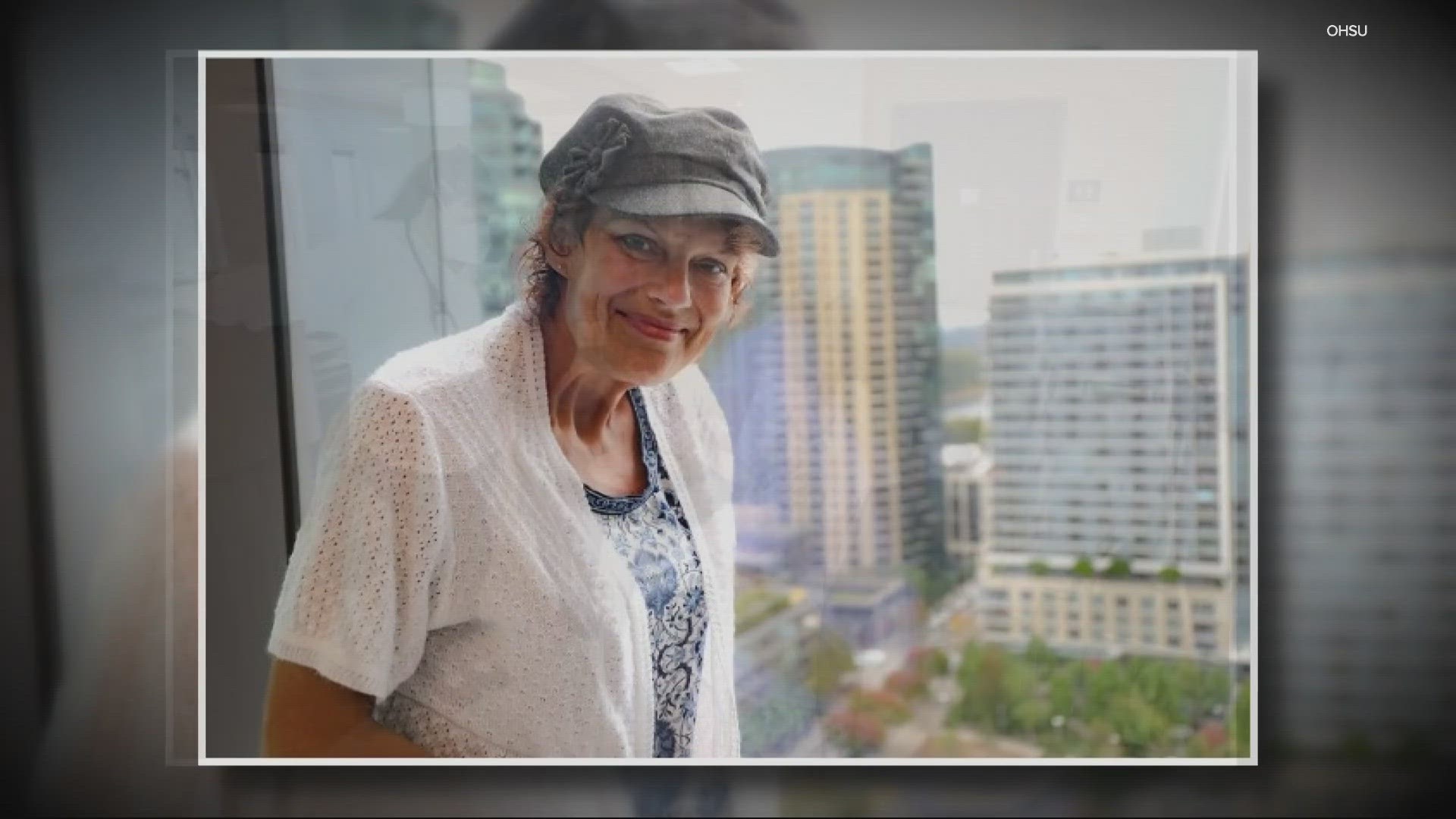KELSO, Wash. — Rhonda Stanz is fighting for the blessing each new day brings. The 51-year-old mom and grandmother from Kelso, Washington, has advanced breast cancer, but she’s feeling better each day, thanks to an early-phase clinical trial at Oregon Health and Science University (OHSU).
“I can hold my grandbaby again. I couldn’t hold her [before],” Stanz said.
This isn’t the first time she’s had a breast cancer diagnosis. She had been declared cancer-free just a month before she felt lumps under her armpit. Stanz said she didn’t call her doctor.
“I just went straight there,” she recalled. “I just knew that those lumps — I’d felt them before.”
A biopsy confirmed her cancer was back — and it was advanced. This time, new tumors were causing severe pain, skin changes and swelling.
“It was very scary for me. They were telling me that there was nothing they could do for me. They gave me less than a year, so this clinical trial was the next best thing for me to do,” she said.
At first, she struggled to find a clinical trial that worked for her, but she found one at Oregon Health and Science University that fit her to a T — TP53 Y22OC, to be exact. That’s the genetic mutation Stanz has that is impacting her cancer.
“There is this minor change in the sequence of the gene, but it can have a major impact on the functioning of the gene," said Dr. Shivanni Kummar. “This change in the gene is one of the reasons that her cancer is doing what it’s doing.”
Dr. Kummar is the head of the Division of Hematology and Medical Oncology in the OHSU School for Medicine, and co-deputy director of the OHSU Knight Cancer Institute.
RELATED: Oregon Health and Science University phone system back online after Thursday morning outage
“Obviously, because it’s experimental, we didn’t know that this would result in this kind of benefit, but given the data we had targeting the gene, we offered it to her, and she accepted,” Dr. Kummar said.
When Stanz first saw Dr. Kummar and entered the study, her arm was so swollen she could barely move it. She had red welts and swollen fingers, and the skin on her chest wall and arm was breaking down.
“My skin was peeling, and it was turning colors. It was awful,” Stanz said.
Stanz enrolled in the trial in June, taking the experimental drug, called PC14586, every day. She would go into OHSU for testing and monitoring once a week.
Within the first week of treatment, Stanz said she started to feel better.
“Once I started taking the clinical trial medicine, everything just immediately started changing back to normal,” she said.
Her arm had swollen up to triple its size as her lymph nodes filled with fluid.
“I couldn’t move my arm at all, and now, I’m able to move my arm and wave,” Stanz said.
Now, she is at the point where she only comes to OHSU once every three weeks. Doctors are excited about the results and what it means for Stanz’s quality of life.
“The disease has shrunk enough that [it is] what we call a partial response to the treatment,” Dr. Kummar said. “So there is some disease that we can see, but it’s significantly smaller. We don’t see disease anywhere else.”
This trial is still in the early phases and there’s a lot more work to be done, but both Stanz and Dr. Kummar are excited about the possibilities ahead.
“Every day is a blessing, being out here every day,” she said. “I’m still out here and I’m healthy and I’m feeling good. I don’t feel like I have cancer.”
There’s hope not just for Stanza, but for future cancer patients.
“Being experimental treatment, we don’t know how long this effect will last, but we are hopeful because she’s tolerating the treatment so well,” Dr. Kummar said.
“There’s hope out here with these clinical trials,” Stanz added.
For more information on this clinical trial and others going on now at OHSU, visit ohsu.edu.

